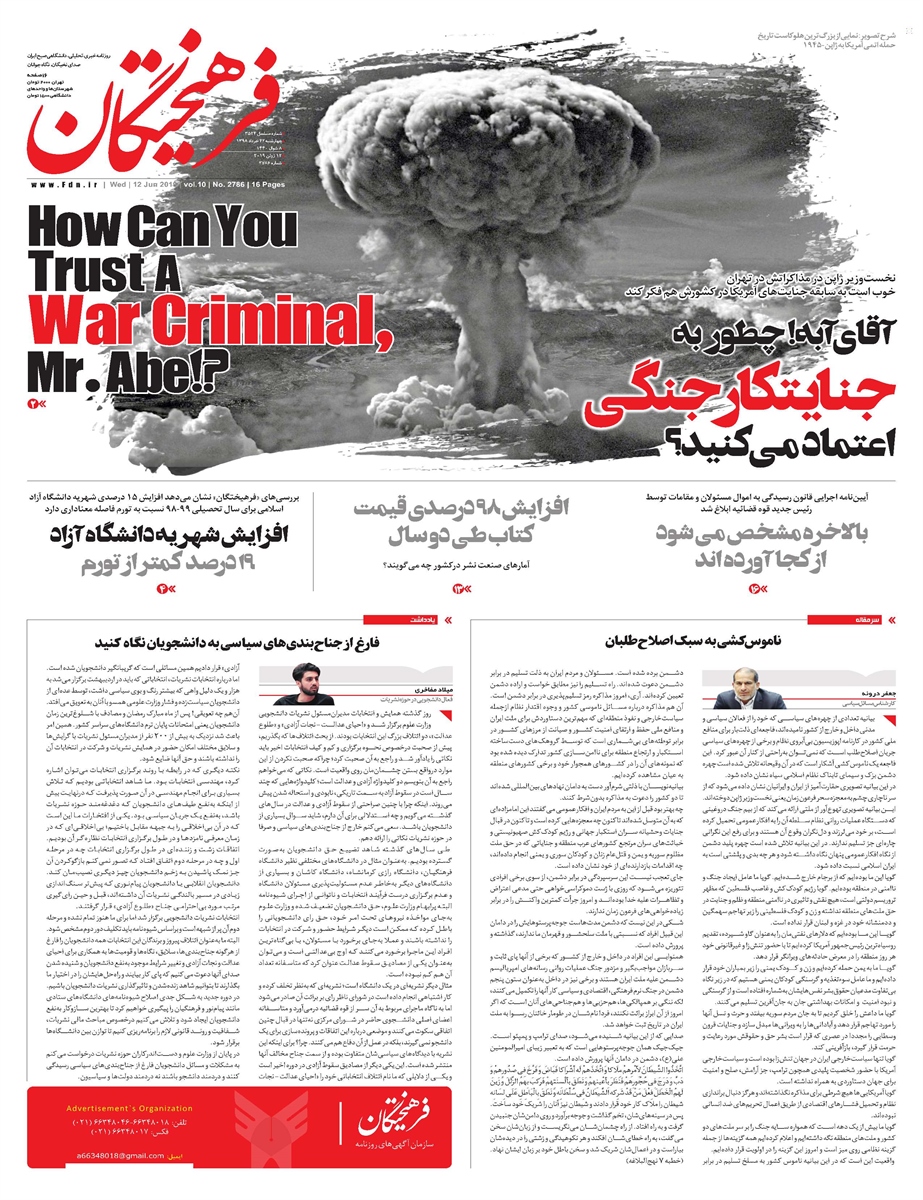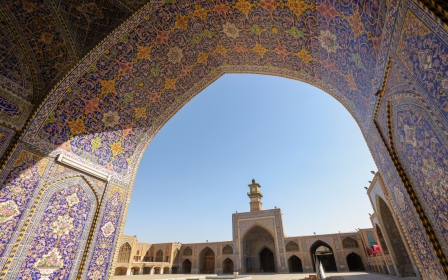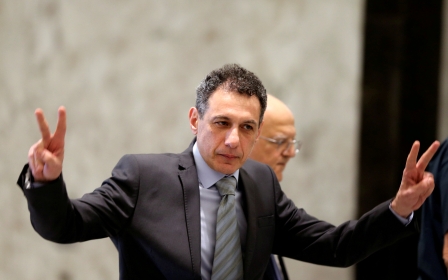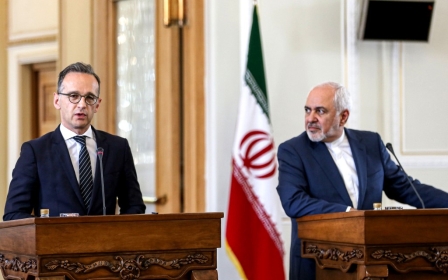Iranian press review: Record seventh minister resigns from Rouhani’s cabinet
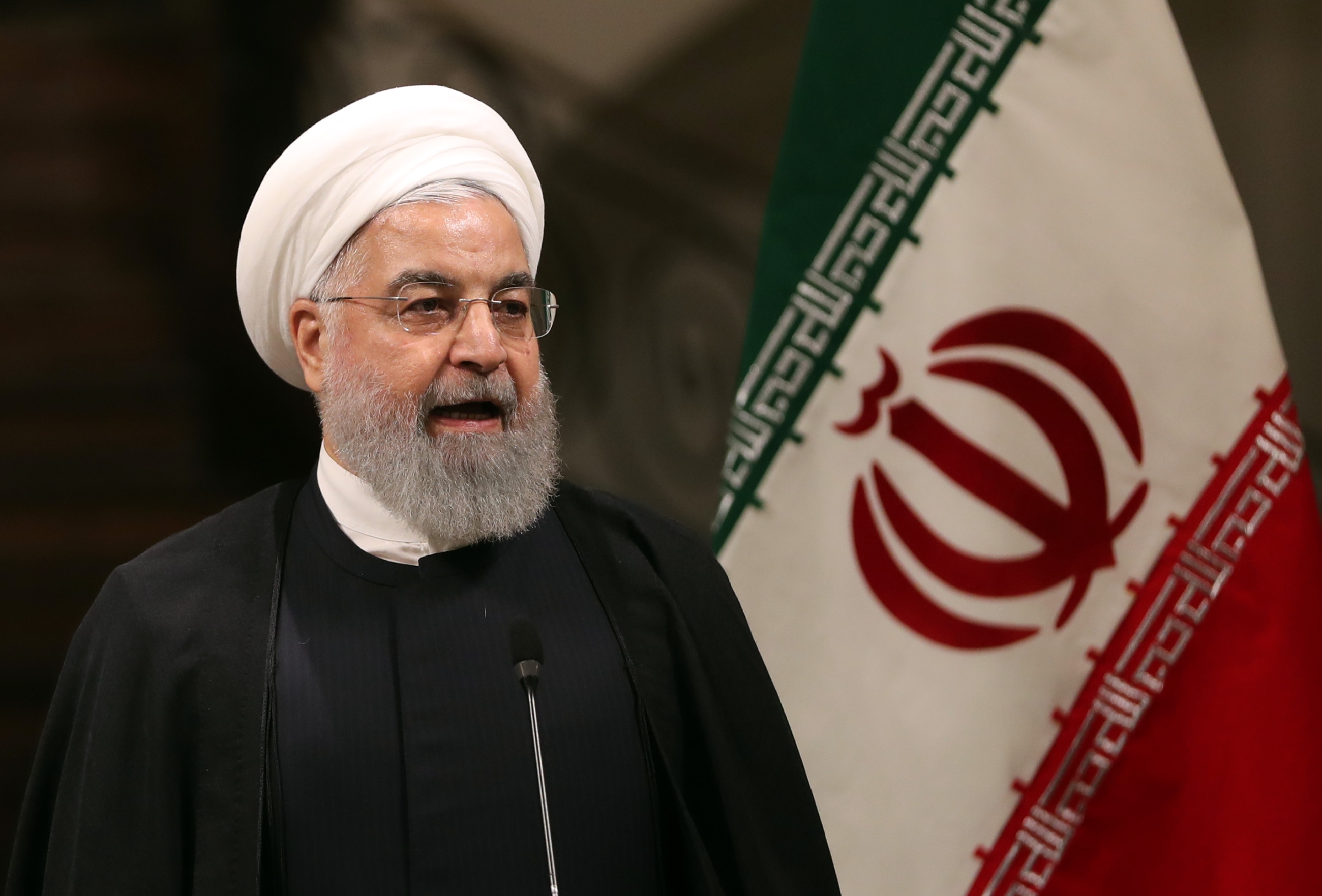
Iran’s education minister resigns to 'run for parliamentary elections'
With the resignation of Mohammad Bathaei, Iran's education minister, President Hassan Rouhani has set a 40-year record for the number of cabinet resignations during his tenure. Bathaei is the seventh minister to leave his government.
Bathaei’s resignation on 8 June has triggered speculation about increasing disagreement among Rouhani’s ministers. Official reports from the cabinet said that Bathaei left his ministry to run in the March 2020 parliamentary elections.
However, the Arman daily suggested that the reformist minister's resignation was due to the government’s rejection of a proposal to provide funds for teachers’ overdue benefits and a rise in their salaries.
“The government is supposed to provide 16,000bn rials (about $380m) to the education ministry for the overdue benefits, but it didn’t,” the daily quoted Iranian legislator Jabbar Kouchakinejhad as saying.
New MEE newsletter: Jerusalem Dispatch
Sign up to get the latest insights and analysis on Israel-Palestine, alongside Turkey Unpacked and other MEE newsletters
In recent years, Iranian teachers have organised several protests and strikes demanding higher salaries, specifically for the retired teachers.
According to sources close to reformists politicians, another reason for Bathaei’s stepping down was the government’s delay in implementing a scheme to rank teachers based on their experience and skill to increase their salary.
Despite it being the seventh resignation in Rouhani’s cabinet during the past six years, the record for the highest number of changes in a cabinet after the 1979 revolution belongs to Mahmoud Ahmadinejad’s government. Ahmadinejad sacked 13 of his ministers in eight years.
Female MP speaks out against gender discrimination
An Iranian MP criticised gender discrimination in the parliament, warning that the body "is just one segment of a gender discriminative system that rules the country”.
“When the entire system has been poisoned by discrimination against women, clearly the same issue applies to the parliament, but with all difficulties we have tried our best to make sure our voice is being heard,” Parvaneh Salahshouri told Khabar Online.
In one of her most recent speeches to the parliament, Salahshouri stressed that the humiliation of women should end, and for such goal, she urged for a change in Iran’s constitution.
“The masculinity of the power structure in our country and the impact of living in a patriarchal society are the two factors empowering each other and holding women back,” Salahshouri told Khabar Online.
She pointed out that during the past three years the committee of women in the Iranian parliament had proposed numerous bills in support of women’s rights.
Among them were bills to increase the punishment for acid attacks, to set a minimum age of marriage for girls, and to give Iranian nationality to the children of mixed marriages with Iranian mothers.
'How can you trust a war criminal, Mr Abe?'
Japan’s Prime Minister Shinzo Abe travelled to Iran in an attempt to de-escalate tensions between Tehran and the US. To mark the visit, the centrist Farhikhtegan daily chose a headline and image referencing the atomic bombing of Hiroshima and Nagasaki for its front page.
“How can you trust a war criminal, Mr Abe?” read Farhikhtegan’s main headline, which was accompanied by a large photo of an atomic bomb mushroom cloud on its front page.
The paper wrote that at the end of the Second World War “Japan’s emperor was trying to end the war and surrender, but Americans had shut down all channels of negotiations [so as] to be able to use the atomic bombs”.
Farhikhtegan also accused the US of colonising Japan by keeping 50,000 forces in American bases in Japanese territory.
Abe’s 12 June two-day visit to Iran has been the first visit of a Japanese prime minister to Tehran since the 1979 Islamic Revolution. During the visit, Abe held meetings with the Iranian supreme leader and president.
More Iranian celebrities travel to Canada for childbirth
The news of an artist couple travelling to Canada to give birth to their child has sparked controversy in Iran, with the supporters of rival political parties strongly criticising the couple's decision.
Iranian actor Negar Javaherian and Iranian director and actor Rambod Javan - who is also the presenter of the popular television show Khandevaneh - travelled to Toronto for the first screening of Javan’s latest movie "Murphy’s Law".
Some outlets reported that the couple planned to stay in Canada until Javaherian gave birth. The Javan daily newspaper, unrelated to the filmmaker with the same name, on 8 June wrote that the premiere date for "Murphy’s Law" was carefully chosen to let the couple have their baby in Canada.
Canada recognises birthright citizenship and many rich Iranian business persons and celebrities travel there to obtain a second nationality for their newborns, and for themselves later.
“Citizens have the right to give birth to their children wherever they like,” wrote the daily.
“But this act will receive serious criticism when those who have always talked and written about their lives in the homeland choose another country for childbirth.”
A day after this news broke, Iran’s Young Journalists Club (YJC) investigated the costs of giving birth to the couple’s baby in Canada and put the price of travel at about 5bn rials (about $120,000).
Middle East Eye delivers independent and unrivalled coverage and analysis of the Middle East, North Africa and beyond. To learn more about republishing this content and the associated fees, please fill out this form. More about MEE can be found here.


